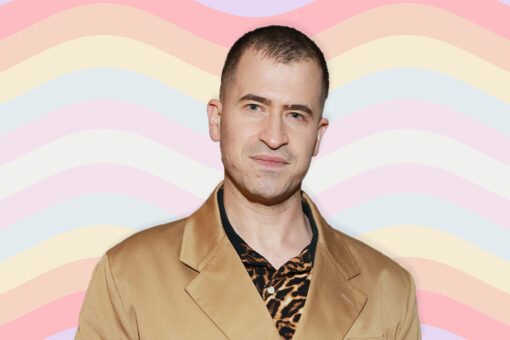“Are you new?”
It’s the question I dread most at temple, usually asked after “Shabbat Shalom, welcome.” Both innocuous statements, but much like my other favorite — “Where are you from?”— it makes me wince every time.
At first I understood. I wasn’t a member, I was young but without kids, and being part-Asian, I don’t pass as white. But now it’s been 11 months of going to this temple, and I doubt things will change.
Like, I suspect, many, I had a life event that kicked off my sudden and regular synagogue attendance: my wedding. Navigating the stressors of wedding planning with multicultural, interfaith needs while living with 45 as president was just too much. The planning brought into focus the fact that despite having a Jewish father, I never learned any of the rituals. My partner and I want kids, and I feel it’s their right to learn who they are from the parent passing on the heritage. I decided temple would be my place to learn and give myself time to breathe.
My first Saturday morning service, I accidentally crashed a bar mitzvah. Even with the inauspicious start, I now spend Friday nights at temple letting myself not check my phone for a while.
The benefits I get from temple are enough that I keep going at least once a week. I’m mostly unobservant at home, but the sound of the prayers and rhythm of the service are already a balm every weekend. When I celebrate Rosh Chodesh, the beginning of a new month, I imagine my words are familiar to long-dead relatives I’ve never met buried across the seas. I learn more about who I am so one day I can teach my children who they are.
But every time, I steel myself for the inevitable. People try to be welcoming, but when I’ve been coming at least once a week for a year, it bothers me people assume I’m new or unaware. Many assume I converted, have asked if I’m married, where my spouse is, if they’re my Jewish connection — all questions that could be attempts to find common ground to chat about, but when delivered rapid fire by someone I haven’t seen before, or worse, have, it feels alienating.
I am different. I can’t white pass because I am by any metric not completely white. We can talk about race being a construct, but as a society, we still use these categories, and I don’t fit.
It doesn’t happen as often now as it did 20 or even 10 years ago, but I still occasionally get asked “But where are you from?” Everyone is surprised when I include Jewish as I irritatedly rattle off my family history since 1905. Some have tried to tell me that since only my father is Jewish, I’m not. My father has always been uninterested in religion. Most of my family is, as my cousin puts it, Jew-ish. When I realized in college I wanted to practice Jewish traditions I had yet to learn, I was intimidated by the campus Hillel’s whiteness. I found out about Birthright and fantasized about going, dreaming a successful Birthright application would mean my identity is finally acknowledged. In a post-2016 election world, I am overly aware of my differences, so I asked a cousin who is also mixed race to apply with me. I actually jumped for joy when I found out we were confirmed on the same trip this summer, and was irrationally excited when I found out a coworker’s mixed race friend might be going on the very same trip. It’s one thing to have familial backup, another to have the connection with someone you’ve never met.
I am hopeful my Birthright trip will help me feel more connected despite the hurt of not being immediately accepted at home. But things there are changing, slowly: I recently was talking to a woman who, after trying to tell me stories of Miriam and David I was more familiar with, finally stopped herself midway through a sentence and said, “I don’t want to talk to you like you don’t know anything, because you clearly do.” It was a refreshing acknowledgement of my self-identity.
Welcoming everyone to the community starts by asking about their internal processes or whether they liked the new tune for Lecha Dodi, not whether their mother’s mother’s mother married the right person. I want to talk about our shared experiences. I just don’t want the conversation to start with, “You’re new.”
Header Image via Robyn Jamie on giphy.



